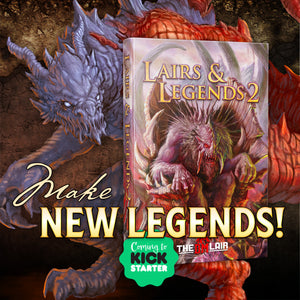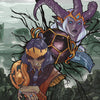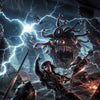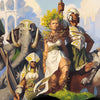7 Ways Clever Dungeon Masters Should Cheat
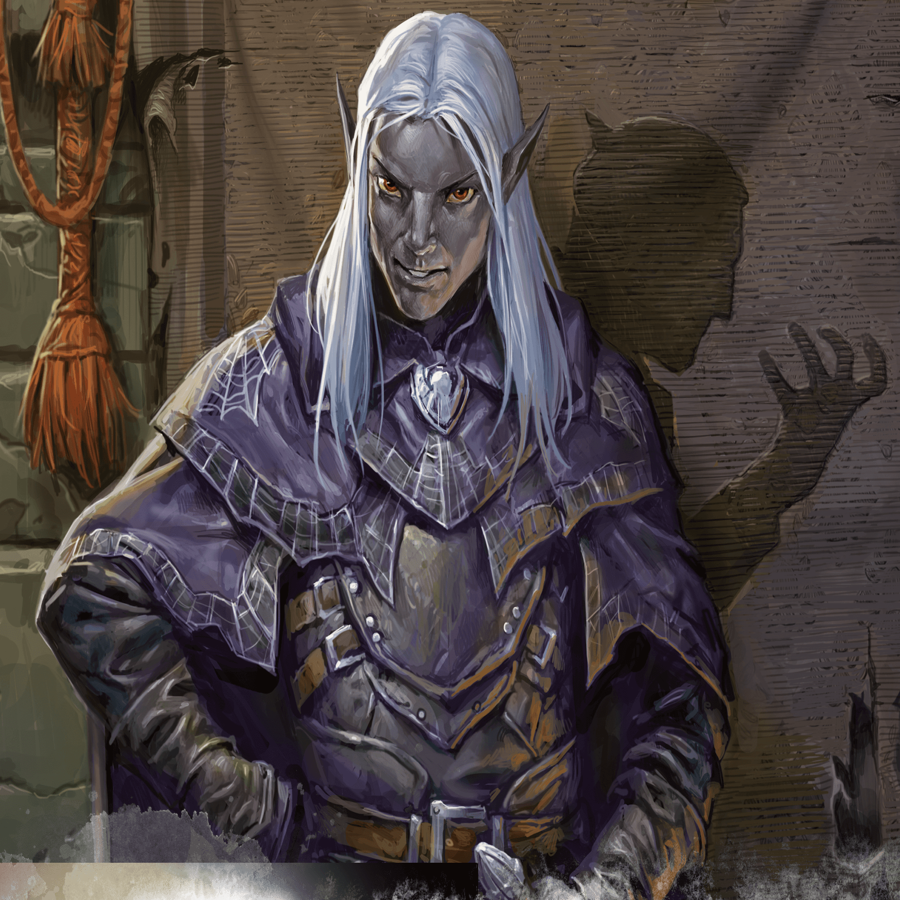
Written by Luke Hart
The other day, I was curious what ChatGPT had to say about game masters cheating. Should they cheat or not? And what are the various ways GMs supposedly cheat? So I asked it, and this is what it said:
“Game masters (GMs) have a unique position in roleplaying games like DUNGEONS & DRAGONS (D&D), as they control the game world, non-player characters (NPCs), and overall story progression. While ‘cheating’ may not be the best term, GMs do have various ways to bend or modify the rules for the sake of storytelling or maintaining game balance. Some methods include. . .”
ChatGPT then went on to list seven ways that GMs “cheat.” The big question, of course, is whether GMs should cheat. Perhaps a better question is, “Can GMs cheat? Does cheating even apply to GMs?” or “Does their unique role in the game make traditional ‘cheating’ not even apply to them?”
OK, so this is what we’re doing today. First, we’re going look at the seven ways GMs can “cheat,” and then we’re going to give our final verdict: Should GMs cheat or not?
Watch or listen to this article by clicking the video below.
#1 Fudging Dice Rolls
This is the most obvious way GMs can cheat. I’m just going to call it cheating for now since it’s the most efficient way to speak, and I’m not going to use air quotes every time. Fudging dice means changing dice roll outcomes to prevent undesirable consequences, such as preventing a character’s death, or ensuring desirable results, such as a key plot event occurring.
A classic example of this happened in my last Pathfinder 2 game session. The group had just come off a TPK—all their characters died—and the very first encounter their brand new characters were in was looking very bleak. I was faced with the question: Should I fudge dice rolls to make sure they don’t all die again in the very next game session, or should I not?
#2 Adjusting Encounter Difficulty
Game masters can adjust the encounter difficulty in various ways, such as changing the number of monsters, their type, or their stats. Doing this can either increase or reduce the challenge, depending on the situation. The first of the three ways I most often see this done is by increasing or decreasing a monster’s hit points. If a fight is too easy, bump up the hit points; if it’s too hard, reduce them. Easy peasy. As a quick sidebar, increasing the hit points just makes a battle last longer and potentially turn into a slog.
A better approach is increasing the damage an enemy does, as this makes the combat more dramatic and exciting, not just longer. Of course, it needs to be justified through roleplaying, but that’s not hard with a little creativity. Besides, most players are familiar with the concept of different stages in a battle, wherein an enemy shifts tactics and perhaps even becomes more dangerous.
The second way GMs often increase the encounter difficulty is by having more enemies arrive. The third way is to have the monsters run away or surrender rather than fight to the death. However, I must say, many times, this happens because the GM is roleplaying the enemies rather than trying to make the encounter easier.
#3 Altering Loot and Rewards
Game masters can change the loot, such as the magic items characters get, to balance the game, give them a much-needed item, or simply create a more exciting experience. For instance, if your players are in the middle of a dungeon crawl, and they are getting trounced and really need some healing, you might have them discover a coffer filled with healing potions in the next room they explore. Or, if their front-line tank just had their armor destroyed by a rust monster, the next group of guards they fight conveniently has one soldier who is wearing full plate armor . . . that also conveniently fits the tank.
#4 Modifying NPC Behavior
Game masters can change how NPCs interact with the players, making them more helpful, hostile, or secretive to drive the story forward or adjust the challenge. For instance, let’s say your players are having trouble figuring out where to go next as they track down a killer on the loose. Well, as they are resting for the night at Granny Titchwillow’s hut, she might give them some important information to point them in the right direction—information that you, the game master, decided on the spot that she would have.
Or, if the group has Gary the Intern traveling with them and helping, but you notice Gary’s presence and elite fighting skills are making all the combats trivial, you could decide that Gary is secretly working for the bad guys and that he either deserts or betrays them—unless they increase the 401k match from 3% to 6%, of course.
#5 The Illusion of Choice
This one can also be called Changing the Plot, and it happens when the GM improvises or modifies the plot to adapt to the players’ decisions. A GM might do this to ensure that important story elements are included, even if the players have deviated from the intended path.
The classic example of this is when characters are “supposed” to go to point A because that’s where the Dastardly Dungeon of Dread and Doom lies, but for whatever reason, they decide to go to point B. Well, then the game master just takes the Dastardly Dungeon of Dread and Doom and plops it down at point B instead. Problem solved!
#6 Bending or Ignoring the Rules
This type of cheating happens when GMs ignore or bend the rules for the sake of the story, to avoid unnecessary complications, or maybe even to help their bad guys win. This behavior is usually justified by quoting the rulebook on page X, which says, “The Game Master is the master of the rules and change any rule as they see fit.” Most game systems have that statement baked into a core rulebook somewhere; you just have to look for it.
#7 Metagaming
With this one, game masters use their knowledge of the players and their characters to influence the game world or even steer players toward specific decisions or outcomes. One example of this is creating adventures customized for the characters, and most times I hear about this, it involves adventures intended to stress their weaknesses and make things more challenging.
Another classic example is having the characters fight a group of enemies that are basically their twins. I actually did this once for my Sword Coast Guard group; it was pretty fun, especially when one of the players, Trevor I think, blurted something along the lines of “Great, we’re basically fighting our mirror opposites.”
Oh, and eavesdropping is another instance of this. That happens when the game master listens to the players talk about something, decides that their idea is cooler than what the GM had come up with, and changes things on the fly to use the players’ ideas. For instance, putting a trap on a door because the players are convinced it must be trapped, or changing the solution to a puzzle because the players just spent 20 minutes “figuring it out” and, even though they are wrong, it feels more satisfying to just allow their solution to work.
There you go. Those are the seven ways GMs supposedly cheat. So, here’s the big question: Is it OK for game masters to cheat? Well, this is what ChatGPT said:
“It’s important to note that these methods should be used with caution and in the best interest of the game’s enjoyment. The goal is to create a fun and engaging experience for the players, not to manipulate the game unfairly or undermine player agency.”
And I must say, that’s pretty well said. Maybe artificial intelligence is going to take over.
Here’s another point, however, and this is something that I always offer on the subject of game masters cheating: If we examine all seven of the ways GMs cheat, we will find one thing they all have in common: they involve the game master changing things on the fly during the game session, whether it’s dice rolls, NPC attitudes, the location of an adventure, or the solution to a puzzle.
Now, if we were to examine the idea of the game master changing those things before the game session, I think most people would agree that it 100% lies within the GM’s right to create the game however they see fit before the game session begins. So, the real issue when considering whether GMs can or should cheat has very little to do with what they are doing. Instead, it has almost everything to do with when they are doing those things: Before or during a game session?
And my question for you is this: Does it really matter?
Think about it. From a player’s point of view, the Dastardly Dungeon of Dread and Doom was always located two hexes northeast of Grimstone. They have no idea the game master moved it when the players decided to go that direction instead. From the player’s point of view, Gary the Intern was always going to betray them and use his 401k match as a negotiation lever.
So, from the players’ point of view, if those things were always that way, and if the game master does have the right to decide those things before a game session begins, why does it make a difference when those decisions occur?
And if it doesn’t matter, can we really call it cheating?
Whether we call it cheating or “curating the game session” doesn’t matter. A better question is whether a game master should do those things. ChatGPT seems to think they should as long as they are done in the best interest of everyone’s enjoyment.
However, this is my general approach as a game master: I prefer to avoid all seven of these as much as possible. Personally, once I’ve designed game elements before a game session begins, I avoid changing them on the fly.
I don’t think there is anything wrong with changing game elements during a game session. I just find it unsatisfying as both a game master and a player. Most times, I’d rather just play it as it lies.
In particular, fudging dice is something that I really don’t like, and doing it makes me feel slimy. That’s the one game element that isn’t decided by the GM before a game begins, and I feel like interfering with it cheapens the game experience for everyone. So, I almost never fudge dice.
However, good game masters—clever game masters—understand that “cheating” from time to time is necessary. The trick is to do it sparingly and only when it improves the game experience for everyone at the table.
100 Years of GM Experience at Your Fingertips!
Are you a NEW GAME MASTER feeling a bit overwhelmed by everything involved with running a role-playing game? Are you a VETERAN GAME MASTER looking for new tips and tricks to take your games to the next level? Look no further than the Secret Art of Game Mastery.
We at the DM Lair have distilled our CENTURY of accumulated GM experience into an easy-to-read guide of practical advice that you can immediately apply to your games! We've even included our own templates–the things that we use to prepare our ACTUAL games.
Get all three books to master your game:
- The Secret Art of Game Mastery. Contains over 100 years of GM advice distilled into an easy-to-read format. It introduces and explains the tools of the trade, scheduling, playstyle, post-game notes, getting player feedback, and more.
- The Secret Art of Preparation. Brings to your fingertips the actual templates and guides that the DM Lair team uses to prepare games, Lair Magazine, and more. Designed as a three-ring binder, it's intended for you to write directly into for your entire campaign!
- The Secret Art of Notetaking. Gives you the keys to tracking your campaign from session to session just like the DM Lair team. Designed as a three-ring binder, it's intended for you to write in and keep track of your whole campaign!
With so much knowledge and experience on its pages, The Secret Art of Game Mastery is guaranteed to become an indispensable tool for all game masters, new and veteran alike. And if that isn’t enough, the information applies to all game systems and all genres!
-
Posted in
Game Master How-To Articles


